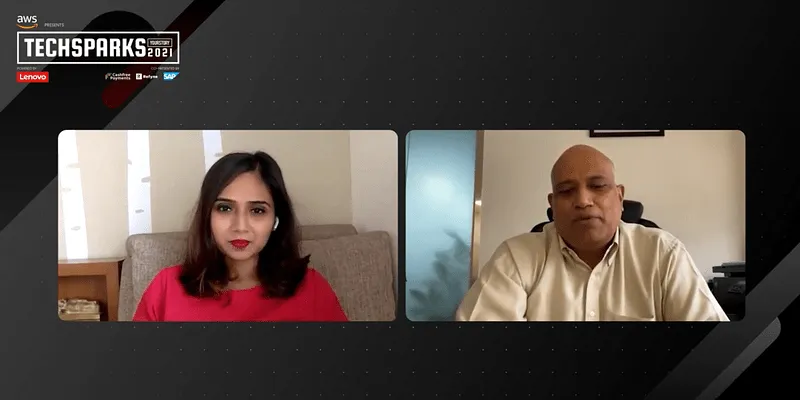Kishore Jayaraman of Rolls Royce decodes the electric future of aviation
In a Fireside chat at TechSparks 2021, Kishore Jayaraman, President, India and South Asia, Rolls Royce shared some key insights on how electrification will change the future of aviation and what role startups and government can play in powering the sector.
Electric Vehicles (EVs) have seen a major uptick in the last few years due to the growing awareness around sustainability. Affordable and clean energy, which are a part of the United Nations’ Sustainable Development Goals (SDGs) towards 2030, have pushed the adoption of EVs even further.
From pollution reduction to longevity, EVs tick all the right boxes when it comes to protecting and preserving the environment. It is, therefore, easy to understand why the Indian EV market reached $5 billion last year and is slated to reach $47 billion by 2026, growing at a CAGR of 44 percent, according to research firm Mordor Intelligence.
In a Fireside chat, Decoding the electric future of aviation, with YourStory’s Senior Anchor and Producer, Priya Sheth, at TechSparks 2021, Kishore Jayaraman, President, India and South Asia, Rolls Royce shared some key insights on how electrification will change the future of aviation.
The ‘Race to Zero’ campaign
‘Race to Zero’ is a global campaign that is aimed at zero carbon recovery to ensure a sustainable future. Kishore highlighted that Rolls Royce is rallying for all its operations to become a zero carbon emission company by 2030 and aims to develop zero emission products by 2050.
He further added that these milestones cannot be achieved without becoming “fully electric.”
“Electrification is a disruptive innovation,” he said.
Kishore also added that there are certain challenges such as awareness, politics, economics, developing infrastructure and more in order to achieve the set targets. He said that the goal is to ultimately become fully electric.
He noted that players such as Airbus, SHELL and Rolls Royce itself have collaborated to develop an all-electric aircraft.

Role of government and startups
“We are privileged to be in a country like India that believes in sustainability, climate change,” he said. However, several factors including government infrastructure will determine the pace at which this industry will move.
“Solar industry is a classic example of how government policies drove the sector,” he noted.
Kishore also pointed out, “Infrastructure development needs to take place with technological advancements. If one precedes the other, then it will be a harder journey.”
He further emphasised that startups will play a key role in driving the electric space in India. According to him, “startups are here to stay” and bigger players need to decode how to “leverage the capabilities of the smaller companies.”
“If they succeed, we all succeed.”
Finally, on being asked whether electric aviation will make travel cheaper or more expensive, Kishore concluded by saying, “Let’s just say it will make travel a lot more cleaner.”
Edited by Affirunisa Kankudti








